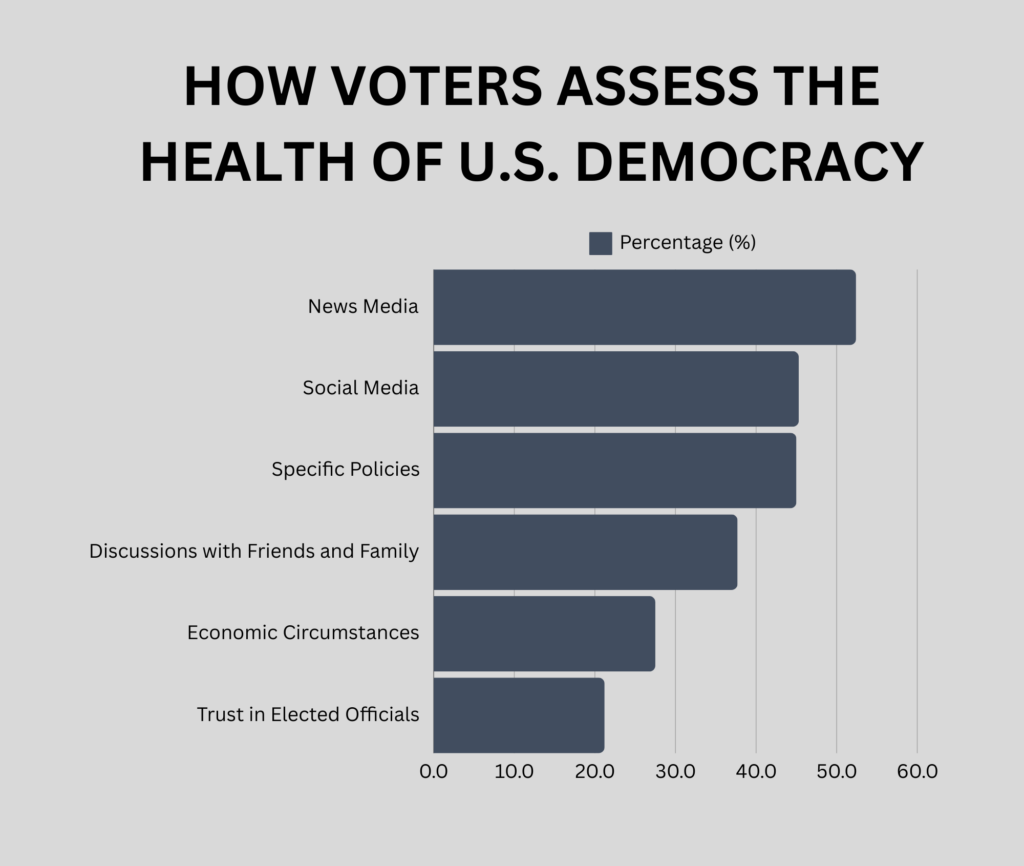October 2024 –
Our recent survey work has revealed key public sentiments on democracy, showing that voters’ views are deeply influenced by both personal experiences and institutional factors. The data suggests that democracy’s perceived health is directly impacted by trusted institutions like the media, policy frameworks, and economic conditions, highlighting the significant role these systems play in shaping public confidence.
A large majority of Americans, 89%, support democracy as the best system for the U.S. When it comes to assessing the health of democracy, voters follow major influences including news media (52%), social media (45%), specific policies (45%), and discussions with friends and family (38%). Economic circumstances (28%) and trust in elected officials (21%) also play significant roles.

When asked about a hypothetical shift away from democracy toward a more centralized government with increased presidential power, 35% of respondents strongly oppose such a change, while 19% somewhat oppose it. Meanwhile, 19% remain neutral or unsure, and 17% somewhat support the shift. A small segment, 11%, strongly supports the idea. These findings are alarming and highlight the urgent need to reinforce democratic values, ensure public trust, and bolster engagement in the democratic process
In conclusion, our survey results regarding Democracy underscore the critical importance of safeguarding democratic institutions and principles. The data reveals that a majority of Americans support democracy, yet a concerning portion is open to alternative systems. This contrast emphasizes the need for continued civic education, transparent governance, and efforts to address the factors that influence perceptions of democratic health. By focusing on strengthening trusted institutions, improving economic conditions, and fostering informed public discourse, we can work towards reinforcing the foundations of our democratic society and ensuring its resilience for future generations.